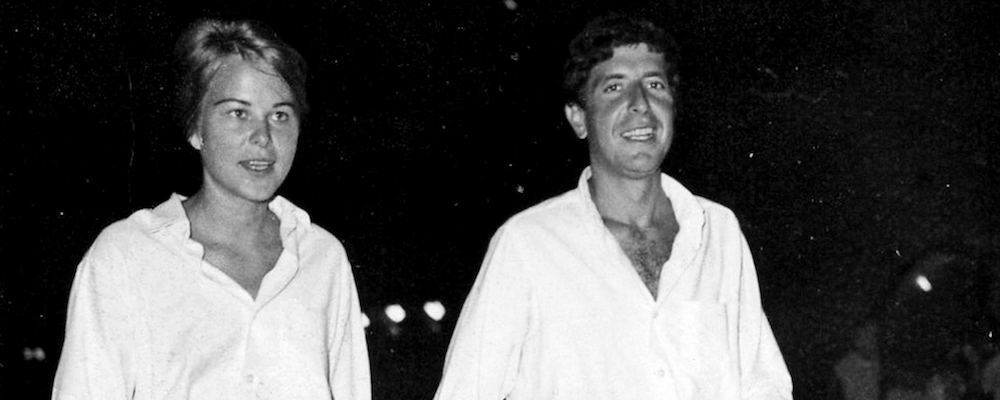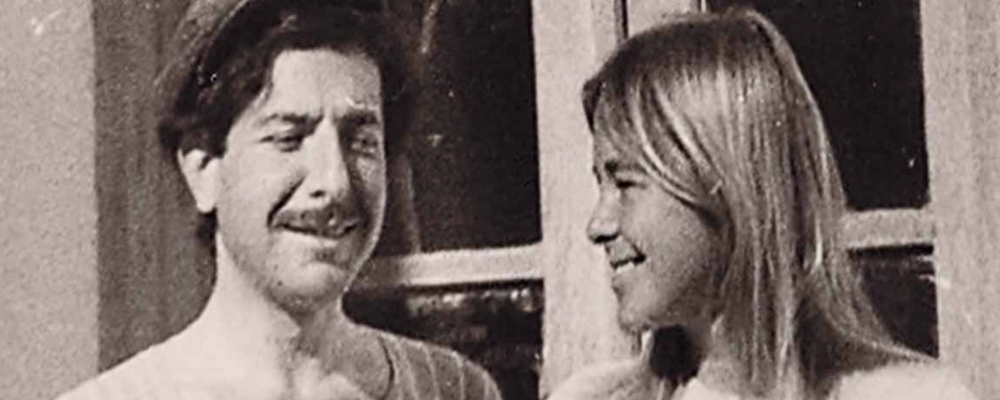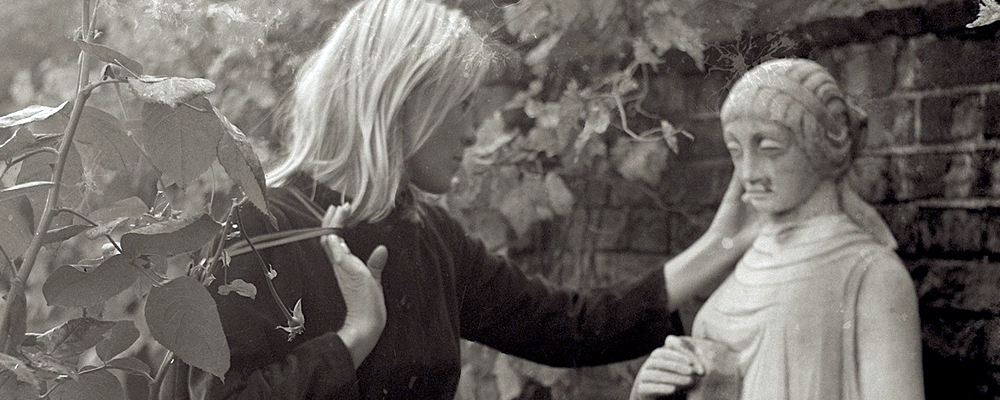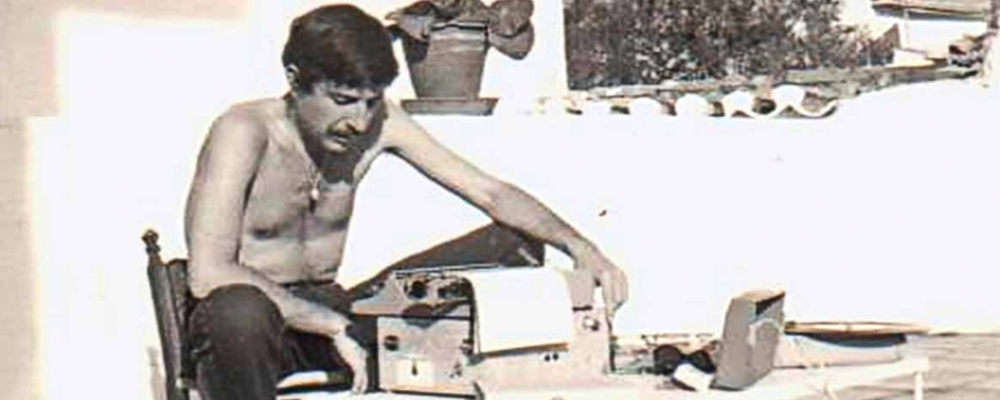‘Marianne & Leonard: Words of Love’ Tells the Story of Leonard Cohen and His Muse
Alci Rengifo
Leonard Cohen was an acclaimed poet, singer, songwriter, author and mystical icon. Such a figure is formed after years of exploration and experience. “Marianne & Leonard: Words of Love” chronicles not only Cohen’s development as an artist, but his more intimate self, and the love affair that stayed with him until the very end. Marianne Christine Ihlen was the gorgeous Norwegian he met on the Greek island of Hydra in the 1960s, becoming in every sense his muse. She would inspire the song “So Long, Marianne.” Director Nick Broomfield also knew her and he too would be shaped by the era.
In the late ’60s Cohen, a native from Quebec, traveled to the island of Hydra with dreams of becoming a writer. At the time the spot was a sumptuous getaway for bohemians and artists. The sexual revolution was beginning and for a brief moment a unique form of sexual openness seemed to prevail. At Hydra Cohen, then in his late twenties, meets Marianne, who sought personal renewal along with her young son Axel. While enjoying the sun-bathed landscapes, Cohen writes his infamous novel “Beautiful Losers” and develops a love affair with Marianne. She provides a unique bond which results in inspiration for his emerging work. He soon departs for Montreal and the novel is savaged by critics. Cohen then decides to explore music and after singing “Suzanne” to Judy Collins, who is so impressed she encourages Cohen to record. As he maintains a link to Marianne Cohen finds fame and success, becoming one of the great folk singers of the times. Yet he is a man soon swept up by his own emotional journeys, taking on many lovers, spending endless time on the road, slowly leaving Marianne behind. In the sidelines of this romance a young Nick Broomfield heard and knew about its details through his own connection to Marianne.
Like few recent documentaries about iconic cultural figures, “Marianne & Leonard” has the unique feature of the director being so personally involved with the subject. Broomfield, a famous film muckraker now looking back at his past, was a student in his early twenties also hanging around Hydra. He met Marianne, and by his own account became a brief lover as well. Broomfield spoke with Entertainment Voice about telling this story, remembering Marianne and reflecting on Leonard Cohen’s impact. “When they [Marianne and Leonard] suddenly died in 2016 and had been such an influence on my work and formation as an artist, I really wanted to revisit that part of my life. One of the things that happens is you move on so quickly with your own career and life, that very significant things and people get left behind in your wake in a way,” said Broomfield. “With Marianne there were so many significant conversations that I wish I had with her that I never had. I also wanted to reconnect with other people that we shared in common from Hydra.”
The early passages of the documentary feel like a hazy trip back to a more bohemian era, as that generation of artists coming of age in a post-World War II generation forged their own culture. Cohen had become a protégé of the Canadian poet Irving Layton, and Layton’s widow appears on camera reminiscing on the times and warning that it’s never been easy being the wife of a poet. A profile also emerges of Cohen as natural wordsmith who came from a family where depression hovered in the genetic tree. Raised in the Jewish upper class, he nonetheless took on a more wandering persona, searching for spiritual and human discoveries. It seemed for a moment that Marianne would be a beacon of true love. “I was a student of 20 in my first year at university studying law, and I did get swept off my feet when I met Marianne and this whole, exotic world,” remembers Broomfield. “It was a rather stimulating and also traumatic period. Change is always traumatic…it was great to discover what that kind of love can do, in recognizing how much she gave to me…and rediscovering the referential place she had for Leonard.” One of the documentary’s most haunting, brief moments is a photograph Broomfield took of Marianne at the time, and we see the blonde muse seeming to stare off, her eyes wondering what will come. “She was the greatest thing that happened to his life, even though it brought her a lot of pain as well.”
As a love story “Marianne & Leonard,” edited with a dreamy tone, is about one of the most wrenching, in a sense tragic forms of bonding, which is through distances. After Cohen released his masterful 1967 debut, “Songs of Leonard Cohen,” the life of a traveling troubadour absorbs him. Immersed in the era’s drug experimentation, having trysts with figures like Janis Joplin, Cohen comes across in old interviews as maybe a bit selfish, but also attempting to fill a void. Listeners are seduced by the eloquent honesty of his prose, the sadness in sensuous phrases. Obviously high on stage, introducing the song “So Long, Marianne” while wondering if she’s out in the audience, Cohen was a poet forever followed by his memories.
But the documentary is also a chronicle of that entire generation, and the less-mentioned aftershocks of a time when full sexual liberation seemed at hand. Marianne’s son Axel would grow up into a portrait of depression, constantly institutionalized. Other Hydra denizens of the time concede that was common with the children of artists who flocked to the spot and be swinging, belle epoque libertines. “Maybe people will have a lot more understanding of their parents,” Broomfield said with a wise grin. “I hope understanding rather than judgement. It’s very easy to judge one decade with the values of another. But it’s a meaningless judgement. A lot of the things done at the time were with the best intentions, but not the best results. It’s easy to be harsh. I hope it will create a sympathetic knowing of that time. It was very much the mentality of the ‘doors of perception,’ like this was all being done for a better world and further way of looking at life.”
With Marianne looking from afar, eventually leaving Hydra and marrying a practical man in Sweden, Cohen went through several transformations and phases which are covered by Broomfield. He recorded an album with Phil Spector even he partially disowned (only performing the song “Memories” in shows), would then return to his essence with a series of albums that would include the classic “Hallelujah,” he found some spiritual balance in Buddhism and a more orderly home with actress Rebecca De Mornay. Always at the forefront would be the power of Cohen’s words. “I think Cohen has a fragility that so many of us have. Maybe he had it in a more pronounced form, and maybe that’s the function of a poet anyway,” said Broomfield. “I think that’s what makes his work so strong. He’s often writing about his fragility and shortcomings. He doesn’t just come out with romantic phrases. A lot of it is full of self-humor.”
Around this time in the late ’80s/early ’90s, Broomfield met Cohen, to whom he was still connected in a rather unique way. “I did meet Leonard. My girlfriend at the time, while we were kind of working together, also had an affair with Leonard. I think he even mentioned to a mutual friend, ‘well he’s been with Marianne so why shouldn’t I…you know…keep the triangle going.’ I almost interviewed her for the film but felt it was a bit unnecessary.”
The documentary’s most powerful moments are in its closing chapters, when Cohen and Marianne, now much older, feeling life’s journey coming to an end, still have their special bond surviving. Cohen invites her to his final tours, giving her front row seats, and Broomfield includes footage of her singing along to “So Long, Marianne” from her seat. When Cohen learned she was on her deathbed he wrote her a final farewell full of empathy and love, which we see her hear on camera (Cohen himself was falling ill). They would die three months apart from each other. For Broomfield Cohen’s work has a powerful sensibility that makes it timeless. “Cohen’s audience is an older one, but I think there’s an amazing amount in him that a younger audience, of the age I was when I was in Hydra, can identify with as well and will identify with. It’s so much about someone searching.”
“Marianne & Leonard: Words of Love” opens July 5 in select theaters.




